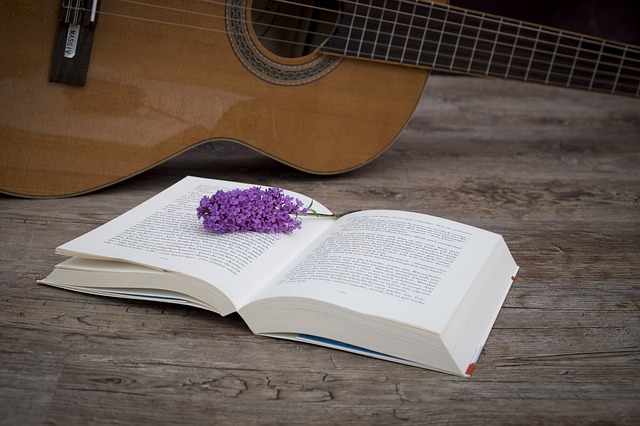“If music be the food of love, play on,” wrote Shakespeare. But it’s not just love that’s fueled by music. Moods, memories, energy level, motivation (or lack of it), desires, fears—all of these can be influenced by an inspired lyric or a well-crafted melody.
And let’s not forget music’s effect on creativity.
Many of the creatives I’ve known (including writers, artists, and actors) acknowledge a connection between music’s inspiration and their own art. Filmmakers use music to enhance the audience’s reactions or expectations. Sculptors and painters may rely on music to fire up their own creative energy, whether they’re looking for the wild abandon of heavy metal or the soothing strains of a classical guitar.
I’ve attended writing workshops that included using a fragment of a song for a writing prompt.
There’s even a recognized brain-science relationship between music and mathematics, engineering, and software programming, with their strong parallels of creativity and pattern-building. When I worked in the software industry, I was struck by how many programmers also played musical instruments.
For writers, too, music is often an important tool in our creative process. Some writers I know play music in the background while they write, to help set the mood for a scene they’re working on. For example, they might play French folk music for a scene set in a Parisian café, or popular songs from the 1940s for their WWII historical romance.
Other writers use music to help shield them from the distractions of the outside world, allowing them to focus on the writing instead of barking dogs or noisy neighbors.
For still others, a particular song or musical passage might trigger an entire new scene or character. I once wrote the first ten chapters of a new novel based on a single image that appeared in my head while listening to a particular instrumental piece.
Many authors use their character’s taste in musical genres to help bring them alive for readers. The protagonist loves to listen to jazz because it reminds them of their father, for example. Or the heroine’s love interest would be perfect except for his love of Bob Dylan, which she just can’t make peace with.
I like to find a song that somehow captures my character—whether it’s lyrics that reflect their personality or dilemma, or a singer’s voice that sounds exactly the way I imagine my protagonist’s voice in my head, or a tone that matches my villain’s emotional state. Once I find that song—usually by accident when it suddenly pops up on my radio or Spotify feed—I like to play that song at the beginning of my writing session to get me primed and “in the moment.”
Other writers I know take this idea even farther, creating playlists of songs that help them visualize their characters, channel those characters’ emotions, or play like a soundtrack to invoke or enhance elements of the whole story.
A playlist like that can later be added to the author’s website as bonus content for readers.
Music may be the food of love, but it’s also the soulmate of creativity. If you haven’t thought seriously about music’s relationship to your own creative process, maybe you should. Play with musical genres that reflect your locations or characters. Do you feel more focused while music plays as you write, or do you need silence? Can you find a theme song to start your writing session, or do you have a song that matches your heroine’s voice? Does your book or protagonist have a playlist?
Who knows? If you need a little something extra to boost your writing sessions this week, maybe a small dose of music will be just the thing to spark your writing energy. As Hans Christian Andersen said, “Where words fail, music speaks.”

